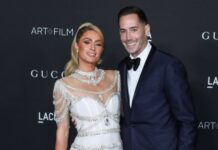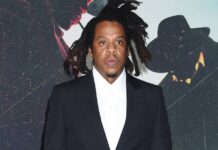Jeon In-kwon’s concert on May 7 was cancelled Tuesday.
The veteran singer did not say why the organizers decided to pull the plug.
But rumours have begun to circulate that it was connected to Jeon’s recent endorsement of Ahn Cheol-soo, the centrist presidential candidate of the People’s Party.
Last week, Jeon publicly announced that he is supporting Ahn in the May 9 presidential election.
“We don’t know if it was because of the political statement. The promoters decided on it,” his representatives said. Jeon, 62, met with backlash following his announcement, mostly from disgruntled supporters of presidential front-runner Moon Jae-in.
There is no hard evidence, but one might reasonably speculate so, given that celebrities in Korea have often been penalized for voicing their political orientation.
This was most apparent in the recent blacklist scandal that turned out to be true, in which the administration of impeached President Park Geun-hye kept a list of cultural figures unfavorable to it.
Unlike past presidential elections, a relatively small number of celebrities have vowed endorsement for candidates this year.
Moon of the Democratic Party — who has enjoyed a comfortable lead in polls, even before the race started — has publicly asked singer Yoon Do-hyun to sing his campaign song.
However, Yoon, who supported Moon in the previous election, has yet to respond.
Even before the blacklist came to light, it was hardly a secret that the Park administration clamped down on celebrities involved in even remotely political affiliations.
A 2012 skit on “SNL Korea” that poked fun at politicians, including the disgraced former president, was cancelled just five months after she was sworn in, with a recent JTBC report showing that Cheong Wa Dae had investigated the political orientation of the show’s writers.
Observers say that the blacklist revelation may have made celebrities even more cautious about publicly supporting political figures.
Chae Jin-won, a professor of comparative politics at the Humanitas College of Kyung Hee University, said that the scandal had shown any administration could keep a blacklist.
“It may be hindering celebrities from speaking out. Psychologically they could be thinking that no matter who gets the power, being singled out will be bad for them,” he said in an interview with Ilyo Sinmun.
Even without taking a possible clampdown by the next administration into consideration, supporting a certain political faction could be damaging to a celebrity’s popularity.
With frequent appearances in recent anti-government protests and performances that were widely shared online, Jeon has almost become a poster boy for the liberal faction.
A lot of his songs were also among favorites for social activists, although the singer himself has said that they were not written with a political intent.
But his support for centrist Ahn has hit him hard in terms of popularity among liberal supporters.
It was reported that many tickets for his concerts were cancelled following his statement last week, with Jeon himself saying he wished cultural figures were able to talk freely about their political orientation.
Following the ouster of Park, political satire seems to be slowly returning to the small screen, with “SNL Korea” reviving its trademark parody of political figures.
But many people hold the view that celebrities publicly discussing political issues or taking part in political works could still be penalized for doing so.
Actor Song Kang-ho, who director Park Chan-wook likened to Robert De Niro, disappeared from the silver screen for nearly two years after appearing in “The Attorney” (2013), which depicted the life of former President Roh Moo-hyun. It was revealed that the prolific actor — who appeared in three movies in 2013 alone before his “hiatus” — was included in the aforementioned blacklist.
Culture critic Ha Jae-geun said that even though political satire has returned to TV, broadcasters like CJ E&M are still cautious.
He said that a quarrel over political satire — like the one between President Donald Trump and satirical shows in the US — is impossible here.
“A fight happens when the two sides are on the equal footing. They can hate and be uncomfortable with each other. That’s it,” he wrote in his column. “It’s a little stranger here. No one fights, but a sketch is cancelled and people start shutting up.
“And people start looking over their shoulders.”







